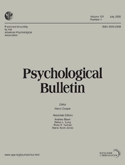 Few would be surprised that religious people have greater self-control than others. With all those rules and highly choreographed social interactions (rituals) how could it be otherwise? According to a new study by psychologists Michael McCullough and Brain Willoughby at the University of Miami religious belief and piety does in fact promote self-discipline but not merely through external means of social control. Apparently, religious belief and practice contribute to “inner strength” which helps make believers less distracted and more able to focus on positive life tasks. McCullough and Willoughby “reviewed eight decades of research” in order to test six propositions related to religious belief, practice, and self-control. Even when controlling for self-selection bias, higher religiosity was found to be related to higher self-control.
Few would be surprised that religious people have greater self-control than others. With all those rules and highly choreographed social interactions (rituals) how could it be otherwise? According to a new study by psychologists Michael McCullough and Brain Willoughby at the University of Miami religious belief and piety does in fact promote self-discipline but not merely through external means of social control. Apparently, religious belief and practice contribute to “inner strength” which helps make believers less distracted and more able to focus on positive life tasks. McCullough and Willoughby “reviewed eight decades of research” in order to test six propositions related to religious belief, practice, and self-control. Even when controlling for self-selection bias, higher religiosity was found to be related to higher self-control.
Interestingly, however, this increase in self-control was not due to external pressures alone. In fact, studies have shown a marked difference in “true believers” or intrinsically religious people and those who join religious communities for extrinsic reasons (such as social networking, etc.). “The intrinsically religious people have higher self-control, but the extrinsically religious do not.” This suggests that religion may have contributed to the evolution of human societies by giving members of a community the tools needed to become, and remain, reliable citizens.
For the original New York Times article by John Tierney, see here.
For the paper by McCullough and Willoughby (forthcoming in the Psychological Bulletin), see here.
